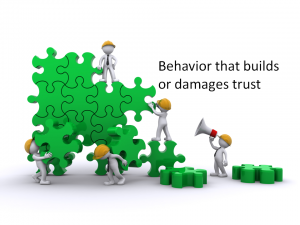 According to Niccolo Machiavelli, it is much safer to be feared than loved. Around the year 1512, Machiavelli was imprisoned for allegedly conspiring against the new ruler, Lorenzo de Medici. To win his favor, he wrote a book, The Prince, outlining the best ways to rule a principality and hold onto power. It was a controversial book – one that sparks debate to this day — is it better to be feared than loved?.
According to Niccolo Machiavelli, it is much safer to be feared than loved. Around the year 1512, Machiavelli was imprisoned for allegedly conspiring against the new ruler, Lorenzo de Medici. To win his favor, he wrote a book, The Prince, outlining the best ways to rule a principality and hold onto power. It was a controversial book – one that sparks debate to this day — is it better to be feared than loved?.
The book is of course, centuries-old but the ideas and issues presented remain relevant for today’s leaders. Is it better for a prince (leader) to be loved or feared? Machiavelli says that it’s better to be both. But since this is almost impossible to achieve, a leader is better off being feared than loved. “ … because men are ungrateful, fickle, and greedy …” According to the book, friendships forged by rewards cannot be depended upon in times of adversity.
Do you agree? Is it better to be feared than loved?
In the 70s, corporations valued loyalty above all things. They saw it as a two-way street. IBM demanded stern loyalty in return for lifetime employment. In the 80s, things took a different turn. It was a time of downsizing, outsourcing, and reengineering. And so concern for employees’ well-being took a backseat to almost everything.
Since then, the trend was to streamline and prune. The threat of future cuts kept everyone on their toes.
Fast forward to 2014, and some startling incident grabs the headlines. Workers of the Market Basket food market chain were on strike.
But they weren’t demanding higher wages. They weren’t picketing on the streets for unfair labor practices or union-busting.
Instead, some 300 employees were resorting to industrial action because they wanted their CEO, Arthur T. Demoulas back. Demoulas was ousted by a hostile board of directors. When he was fired, six high-level managers resigned as well. Employees refused to return to work under threat that they would be fired. And guess what… they took the risk and carried on with the rallies.
It was unheard of
It seems like a quixotic thing to do. But it’s as real as real can get. Just what did Arthur T. Demoulas (who was fondly called Artie T) do to be loved this much? The pay wasn’t significantly more than similarly situated supermarket chains.
For one, under his leadership, good benefits were provided. Part-Time employees could look forward to a Christmas bonus and tuition assistance. Second, line employees saw career growth. It was possible to get promoted to tasks of authority.
But more importantly, they could see that Artie T genuinely cared. When he would visit stores, he’d make it a point to ask about employees’ families. And on those instances when the economy was in a slump, the company didn’t resort to cutting down wages or closing stores to preserve profit margins.
He was a loved leader
Becoming Tigers – Leading Your Team to Success, discusses this kind of genuine respect and concern. The 7th chapter, in particular, talks about how genuineness starts with the leader.
When a person of authority is genuine, he/she will naturally attract like minds. You get what you give. And the best part is, respectfully sincere, frank and forthright behavior has a habit of spreading.
This lesson is a focal point of the book. The book centers on the adventures of two tigers, Kali and Ashoka – two leaders who have the same goals and similarly-abled tribe members, yet one seemed to govern better than the other. One was loved and respected. The other was feared and hated. Why is there even a difference? And why won’t the “hated” leader simply change his management style?
The captivating story may be one filled with wild animals, but the parallelism to real life is remarkable. We do have leaders who lead by fear as much as leaders who lead by being loved and respected. One could always argue, “whatever works”. But then… for how long? And what consequences does fear bring when the going gets tough? Will your team members be in the trenches with you? Or will they up and leave?
Fear breeds resentment and distrust – not respect. When good deeds aren’t acknowledged and when bad deeds are always brought to fore, nobody will want to speak up or contribute for fear of being shamed and humiliated.
It’s a basic human trait that many leaders seem to forget.
Whichever leadership style you choose, you will want to take a leaf from Becoming Tigers – Leading Your Team to Success’ pages. Team members and employees thrive when they feel valued. They cannot feel valued when they are ruled with fear.
Care to dig deeper? Is It Better To Be Feared Than Loved?
The following resources add to this discussion:
- Should leaders be loved or feared?
- Heart at Work Online Podcast – Why Happiness Matters
- White Paper- Why Happiness Matters in the Workplace and Beyond
- A Positive Work Culture Produces Happiness
- Improve Happiness to Improve Engagement in Government Agencies
- What Really Leads to Happiness in the Workplace?
Copyright TIGERS Success Series, Inc. by Dianne Crampton
 About TIGERS Success Series, Inc.
About TIGERS Success Series, Inc.
Why guess what is needed for workforce development when it is completely unnecessary? Our mission is to improve the world of work for millions of employees while their organizations thrive. We accomplish this with a researched and validated comprehensive, robust system for improving both your work environment and profitability.
We specialize in developing high performance work cultures. Scaled to grow with you, our proprietary Team Behavior Profile, consulting and group facilitation services, and online TIGERS micro training packages are based on the six principles we have found to be the right mix to make this happen. Invite us to present at your next conference or association meeting.